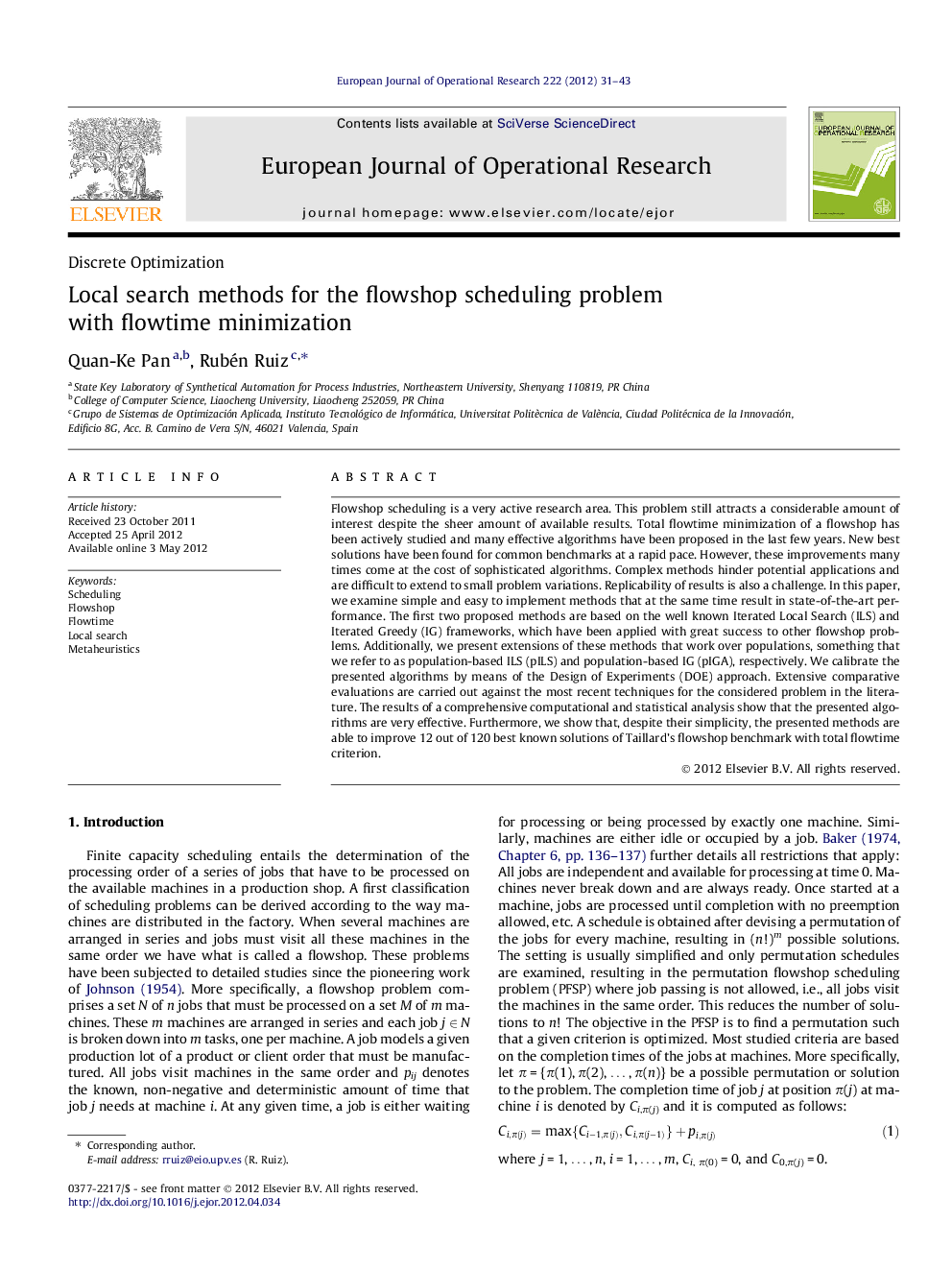| Article ID | Journal | Published Year | Pages | File Type |
|---|---|---|---|---|
| 478372 | European Journal of Operational Research | 2012 | 13 Pages |
Flowshop scheduling is a very active research area. This problem still attracts a considerable amount of interest despite the sheer amount of available results. Total flowtime minimization of a flowshop has been actively studied and many effective algorithms have been proposed in the last few years. New best solutions have been found for common benchmarks at a rapid pace. However, these improvements many times come at the cost of sophisticated algorithms. Complex methods hinder potential applications and are difficult to extend to small problem variations. Replicability of results is also a challenge. In this paper, we examine simple and easy to implement methods that at the same time result in state-of-the-art performance. The first two proposed methods are based on the well known Iterated Local Search (ILS) and Iterated Greedy (IG) frameworks, which have been applied with great success to other flowshop problems. Additionally, we present extensions of these methods that work over populations, something that we refer to as population-based ILS (pILS) and population-based IG (pIGA), respectively. We calibrate the presented algorithms by means of the Design of Experiments (DOE) approach. Extensive comparative evaluations are carried out against the most recent techniques for the considered problem in the literature. The results of a comprehensive computational and statistical analysis show that the presented algorithms are very effective. Furthermore, we show that, despite their simplicity, the presented methods are able to improve 12 out of 120 best known solutions of Taillard’s flowshop benchmark with total flowtime criterion.
► The paper proposes four state-of-the-art methods for the permutation flowshop problem with total flowtime criterion. ► Simple local search heuristics are proposed. ► Computational and statistical analyses show the superiority of the presented approach. ► A total of 16 algorithms are compared in comprehensive computational and statistical analyses.
